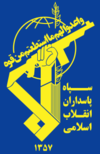C 14-class missile boat
This article needs additional citations for verification. (February 2024) |
 The Iranian version, named Azarakhsh
| |
| Class overview | |
|---|---|
| Operators | |
| Succeeded by | Type 022 missile boat |
| In commission | Since 2002 |
| General characteristics | |
| Displacement | 20 tons (fully loaded)[1] |
| Length | 23 m (75 ft 6 in) |
| Beam | 4 m (13 ft 1 in) |
| Height | 3.6 m (11 ft 10 in) |
| Draught | 1 m (3 ft 3 in) |
| Propulsion | 2 x Isotta V1312 T2 MS diesel engines rated at 880Kw/2700rpm, 2 x ZF Trimax 3200 surface drive with ZF 550 gearbox |
| Speed | 50 kn (93 km/h)+ |
| Range | 300 nmi (560 km) |
| Crew | 10 |
| Sensors and processing systems | Type 351 light surface search radar |
| Armament | |
| Notes | [1] |
The C 14-class missile boat is a light missile boat of catamaran designed for use in the Middle East, also known as the China Cat class. The small size of the ship, along with some stealth features provide it with good protection against enemy detection, and it can be armed with a variety of light anti-ship missiles. In addition to the low radar cross section, the boat is also extremely fast with an aluminum monohull with stepped planning.
Design
[edit]The catamaran design provides better seaworthiness in comparison to the other boats of similar displacement with a conventional hull. The missile boats have been exported to Iran, where since 2000 it has been in service with the Islamic Revolutionary Guards Navy Corps. In Chinese service, it primarily serves as a trial boat, including testing various light anti-ship missiles and other weaponry for catamarans.
The boats were reportedly first seen in Iran in May 2002, and western sources assumed that a number of these vessels were delivered by China.[2]

